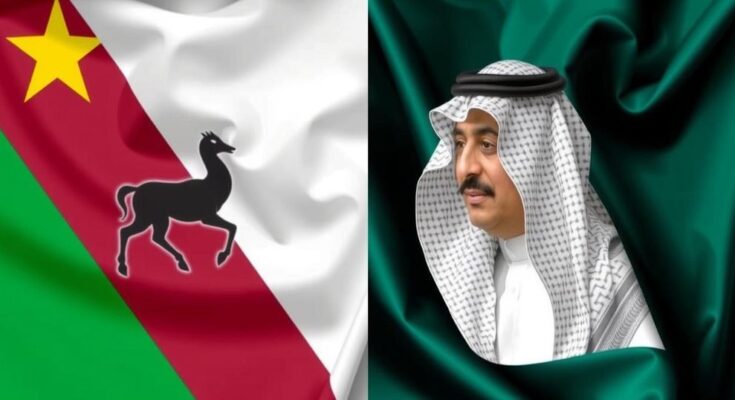Zambia and Saudi Arabia have signed a debt restructuring agreement involving over $130 million of Zambia’s debt. The deal was formalized in Lusaka by Zambian Finance Minister Situmbeko Musokotwane and Saudi Fund for Development CEO Sultan bin Abdulrahman Al-Marshad. The agreement aims to enhance fiscal sustainability and economic growth, while also securing a $35 million loan for a specialized hospital. This follows Zambia’s earlier debt restructuring with France under the IMF-supported program.
Zambia and Saudi Arabia have officially established a debt restructuring agreement, which aims to revise more than $130 million of Zambia’s obligations to the Arab nation. This significant agreement was formalized on Thursday in Lusaka through a signature by Zambian Minister of Finance and National Planning, Situmbeko Musokotwane, alongside Sultan bin Abdulrahman Al-Marshad, the Chief Executive Officer of the Saudi Fund for Development.
During the signing, Minister Musokotwane emphasized that this debt restructuring highlights a mutual commitment to mitigating Zambia’s financial burdens, promoting fiscal sustainability, and strengthening economic growth. “This bilateral agreement is a result of our constructive dialogue and collaboration, for which we deeply thank the Saudi Fund for Development and its leadership,” stated Musokotwane. In reciprocity, Al-Marshad remarked that the agreement signifies the continuing development partnership between the two nations.
In addition to addressing Zambia’s debt, the two countries ratified another agreement to approve a $35 million loan which will facilitate the construction of the King Salman Specialised Hospital in Zambia. This deal with Saudi Arabia follows a recent restructuring arrangement Zambia finalized with France on December 8, which aims to revamp debts owed to the European nation.
This restructuring aligns with the objectives supported by the International Monetary Fund (IMF), aiming to navigate Zambia toward a sustainable debt trajectory. France has supplemented this effort by providing Zambia with budgetary aid amounting to €16 million over two years (2023-2024) to support emergency food programs responding to El Niño-induced droughts.
Zambia’s public debt was previously erased under the Heavily Indebted Poor Countries initiative in 2005, as reported by DNE Africa, which cited the Center for Global Development (CGD). Following this, the nation attracted major investment from Chinese state-owned banks in the late 2000s to stimulate economic diversification. While these investments propelled growth, they simultaneously elevated Zambia’s debt levels, culminating in a sovereign default in December 2020.
The sovereign debt restructuring process initiated under the G20 Common Framework from 2020 to 2024 involved lengthy negotiations. The CGD indicated that this drawn-out process stifled the Zambian economy for over three and a half years, exposing flaws within the Common Framework now recognized by the development community. Through its analysis, the CGD reflects on Zambia’s experiences regarding sovereign debt restructuring, pointing out potential reforms to assist low-income countries facing similar debt crises in the future.
The debt restructuring agreement between Zambia and Saudi Arabia is part of a broader effort for Zambia to manage its public debt. Following a period of significant foreign investment, notably from Chinese banks in the late 2000s, Zambia experienced increased debt levels leading to a sovereign default. Through financial agreements like those with Saudi Arabia and France, Zambia is working towards fiscal sustainability and growth while addressing past financial challenges. The International Monetary Fund supports these efforts, highlighting their relevance in restoring economic stability in Zambia and similar nations facing debt distress.
In conclusion, the debt restructuring agreement between Zambia and Saudi Arabia reflects a strategic move to alleviate Zambia’s financial burdens and strengthen economic ties. With added support from other nations like France, these agreements mark significant progress in Zambia’s efforts to attain fiscal sustainability. Moreover, the challenges faced during previous debt negotiations highlight the necessity for reform in the frameworks used to assist low-income countries in managing their debts effectively. These ongoing collaborations suggest a focused path towards recovery and stability for Zambia.
Original Source: www.dailynewsegypt.com




